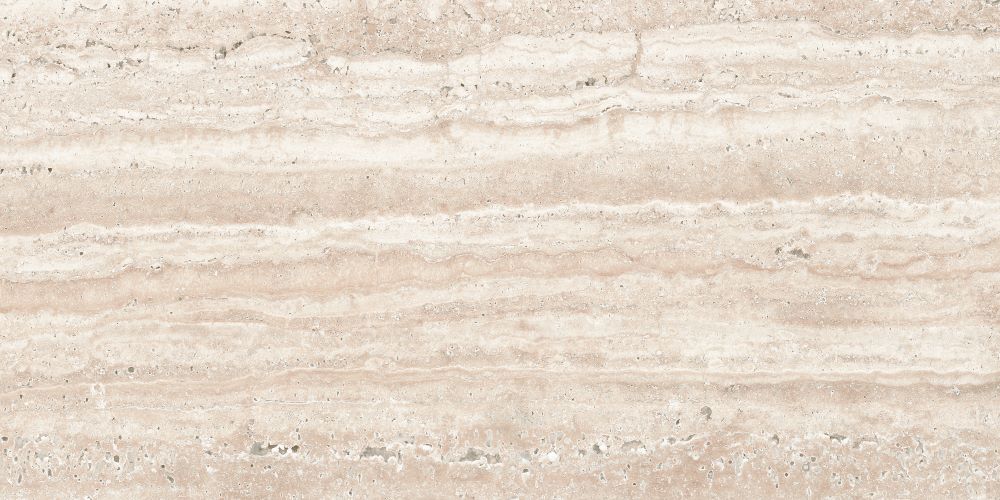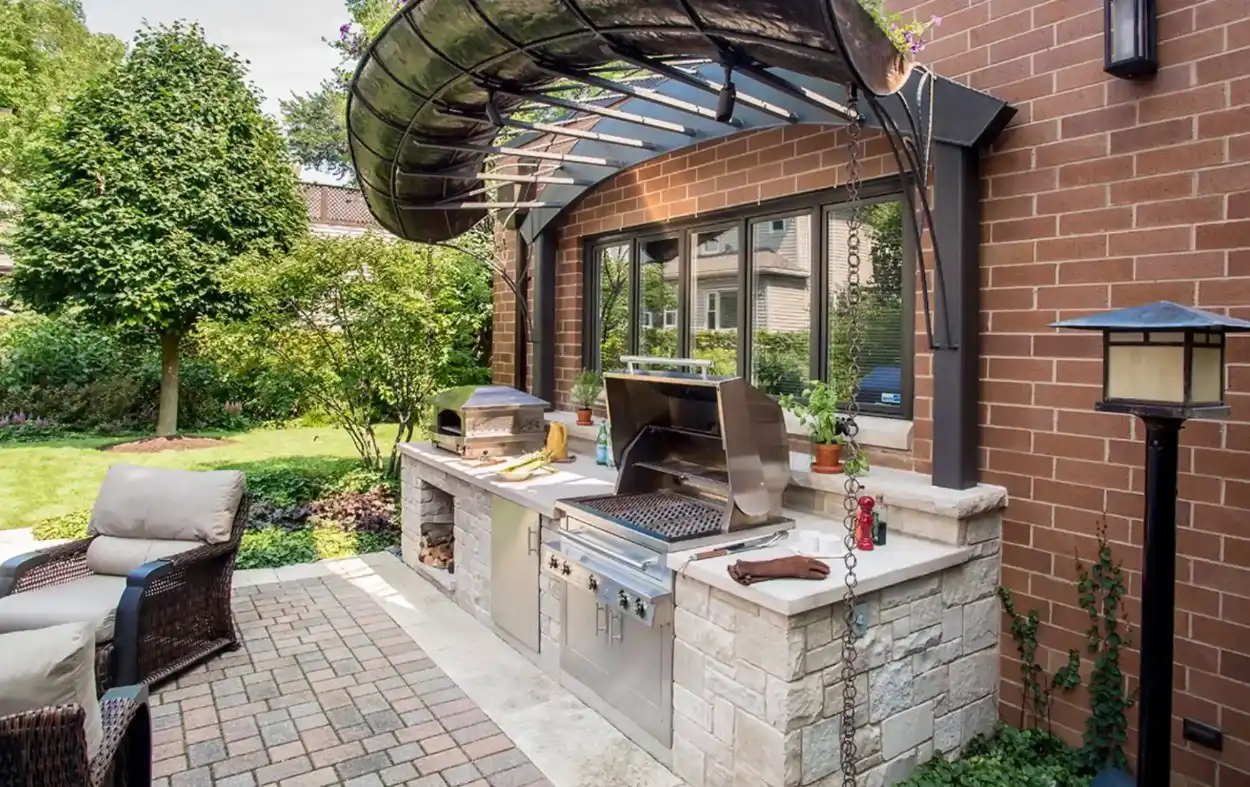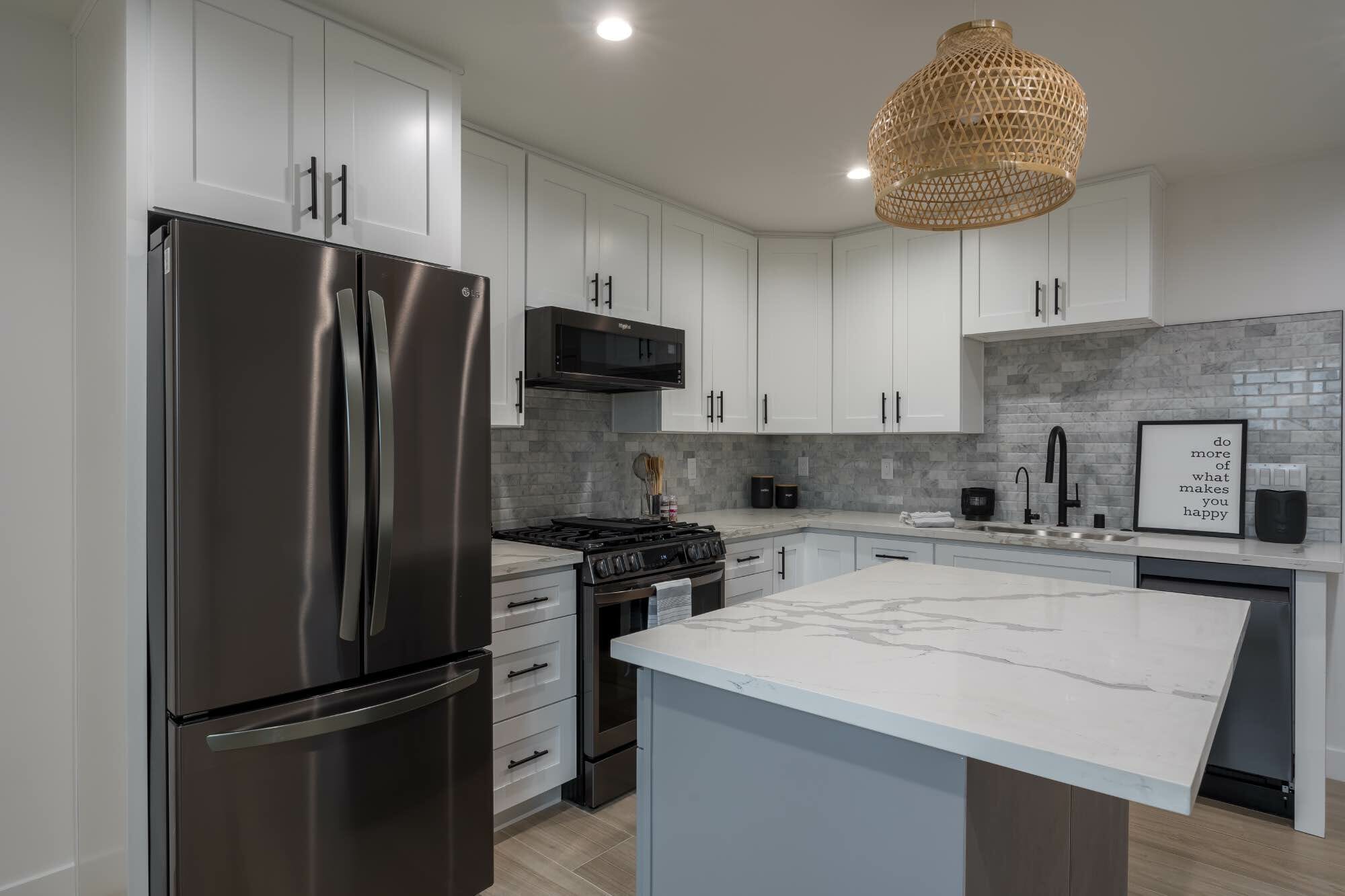Looking to redo some of your home’s flooring? This project can be one of the priciest of your home renovation, and with all the options to choose from, it’s impossible to know if you’re getting a good deal. Penny pinchers may have heard of vinyl flooring, a cost-effective type of flooring that can replace hardwood and tile floors. But is vinyl flooring high-quality enough to stand the test of time? And what is it, anyway?
Choosing the wrong floors can lead to problems down the road, including water damage, scratching, and warped floors. Lucky for you, DYM Builders has all the information you need to decide if vinyl flooring is right for you. Read on to find out what vinyl flooring is, why you might choose to use it, and how to select the perfect type for your space.
What is vinyl flooring?
Vinyl flooring is synthetic flooring that can come in sheets, tiles, or planks. Made of plastic, PVC, and fiberglass, this flooring is typically made of three layers. The first layer is the thickest and gives the floor some weight. The second layer showcases a design, which often mimics the look of tile or wood. The final layer is protective.
Nowadays, you might see some vinyl floorings referred to as “luxury vinyl flooring” (LVF) or “luxury vinyl plank flooring” (LVP). These products are much thicker than typical vinyl flooring, offering more heft. Usually, luxury vinyl flooring that mimics the look of hardwood floors has grooves that click into place. In contrast, luxury vinyl flooring that mimics tiles generally comes in tiles or sheets. These luxury alternatives also offer a second protective layer for a total of four layers.
What are the pros and cons of vinyl flooring?
There are several reasons why you might install vinyl flooring. Vinyl flooring is:
- Affordable
- Resistant to wear and tear
- Often water-resistant or waterproof
- Versatile with many design options
- Easy to install
However, vinyl flooring also has its drawbacks. Vinyl flooring is:
- Not an attractive resale value
- Hard to repair if one tile/plank is damaged
- Made of synthetic materials, making it hard to recycle
Is vinyl flooring cheap?
Generally speaking, yes. Vinyl flooring is a much more affordable option than hardwood and ceramic flooring. Sheet vinyl flooring typically costs between 50 cents and $2 per square foot, but those prices increase for higher-grade vinyl flooring. For example, the thicker luxury vinyl flooring costs an average of $2.50 to $5 per square foot. This is still much more affordable than hardwood floors, which cost an average of $6 to $12 per square foot, or ceramic tile, which costs between 50 cents and $7 per square foot on average. Porcelain tile costs even more, between $3 and $10 on average.
Is vinyl flooring the same thing as linoleum?
Not exactly. While the two types of flooring may sound similar, linoleum has been around much longer and is made of different materials. Linoleum is surprisingly eco-friendly as it is usually composed of cork, linseed oil, jute, and rosins. Linoleum typically costs around $3.50 and can easily be installed over an existing floor. However, linoleum is a bit tougher to install than vinyl flooring, mainly because it doesn’t handle moisture as well as vinyl flooring and needs to be appropriately sealed.
Can I install vinyl flooring myself?
Yes, you can. Vinyl flooring is generally easy to install, and you can complete a project within a day or two. However, if you have problems with your sub-floor or have awkward nooks and crannies to work around, you may consider hiring a professional such as DYM Builders to help. Installing vinyl flooring is usually not as large of a job as tiling or wood.
Can I use vinyl flooring in the bathroom?
Yes. Many companies make water-resistant or waterproof vinyl flooring that is perfect for areas that get wet such as the bathroom, kitchen, laundry room, and mudroom. Companies like Lifeproof offer an easy click-and-lock design that prevents water from seeping into the subfloors. This means you can mimic the look of hardwood even in your bathroom or kitchen, where tile is usually used.
Is vinyl flooring right for me?
If you’re looking for an inexpensive, easy-to-install flooring option, vinyl flooring might be a good choice. But ultimately, deciding whether or not to use vinyl flooring in your renovation is a personal choice. Your budget may not allow for upscale choices like porcelain tile or hardwood. However, there are options for you at every price range! A contractor like DYM Builders can help you decide what flooring is best for your house.
